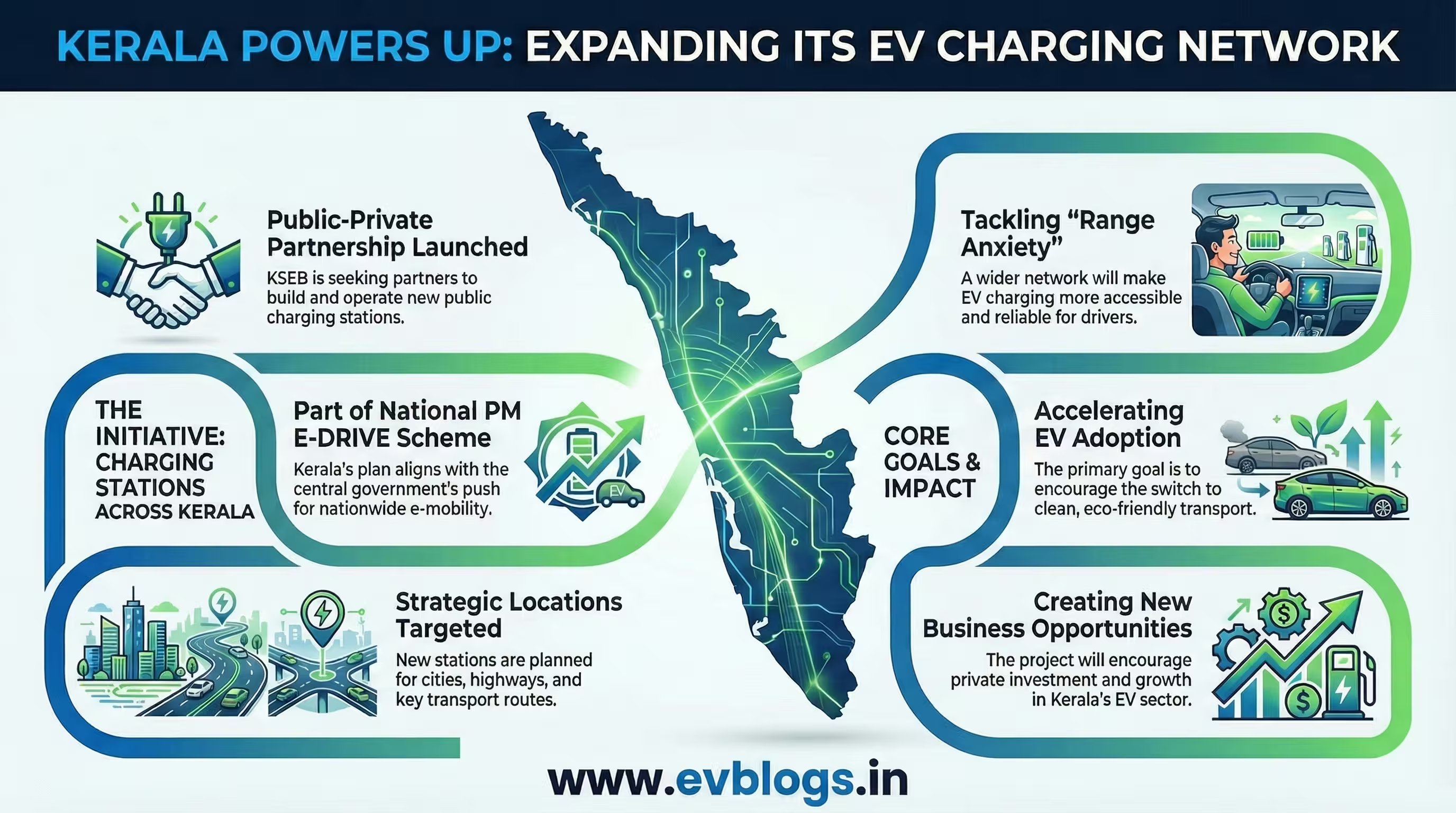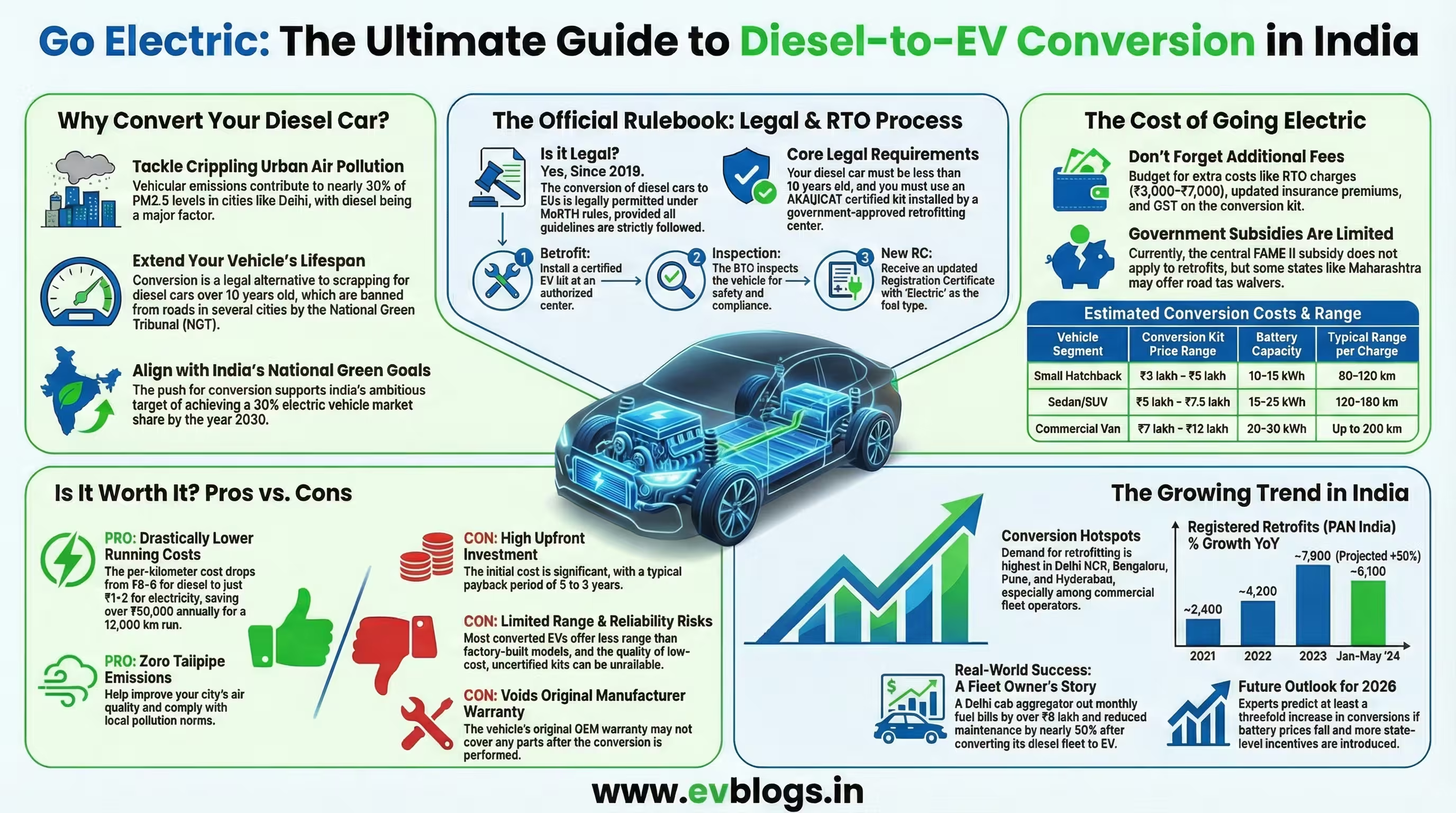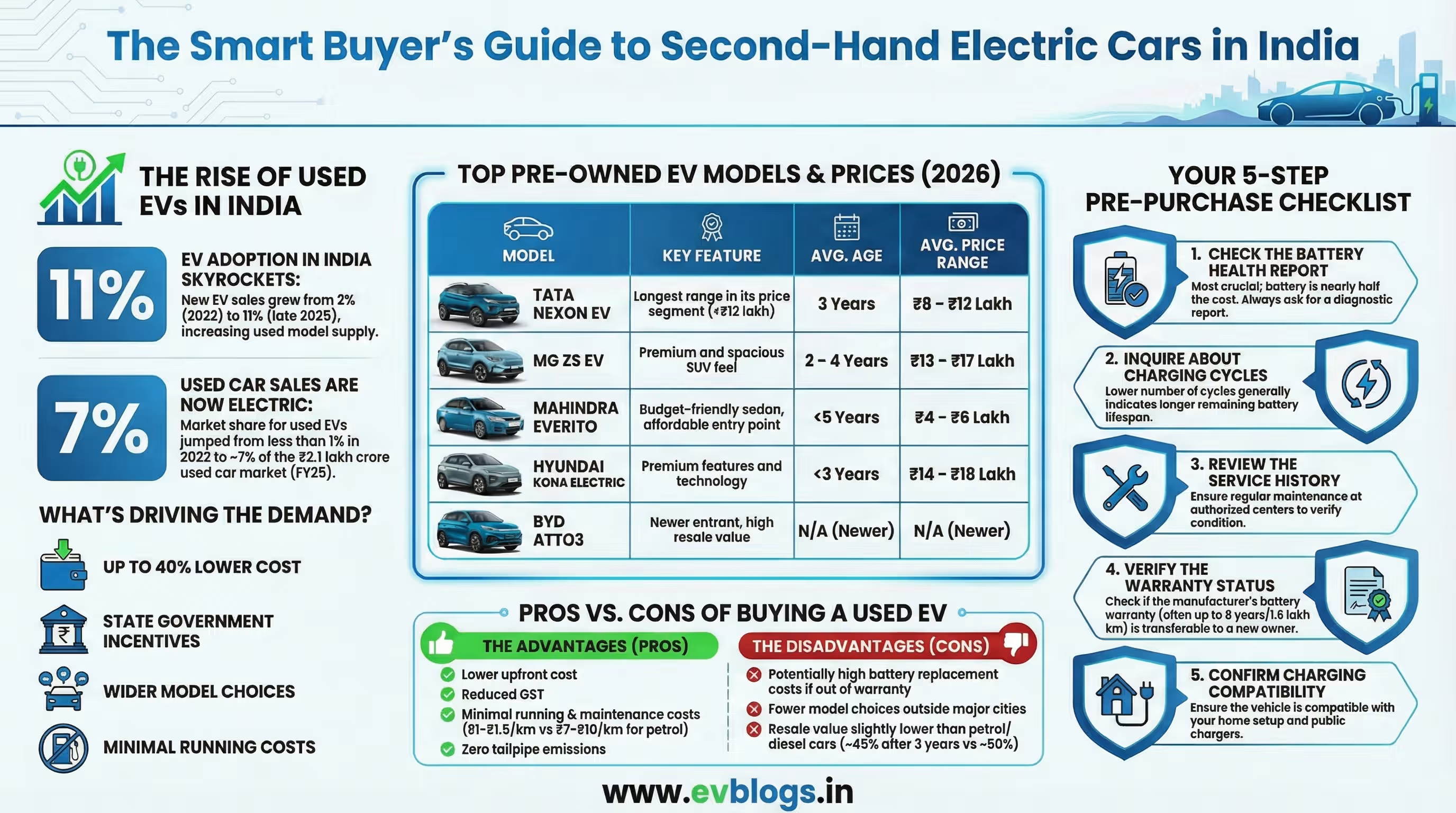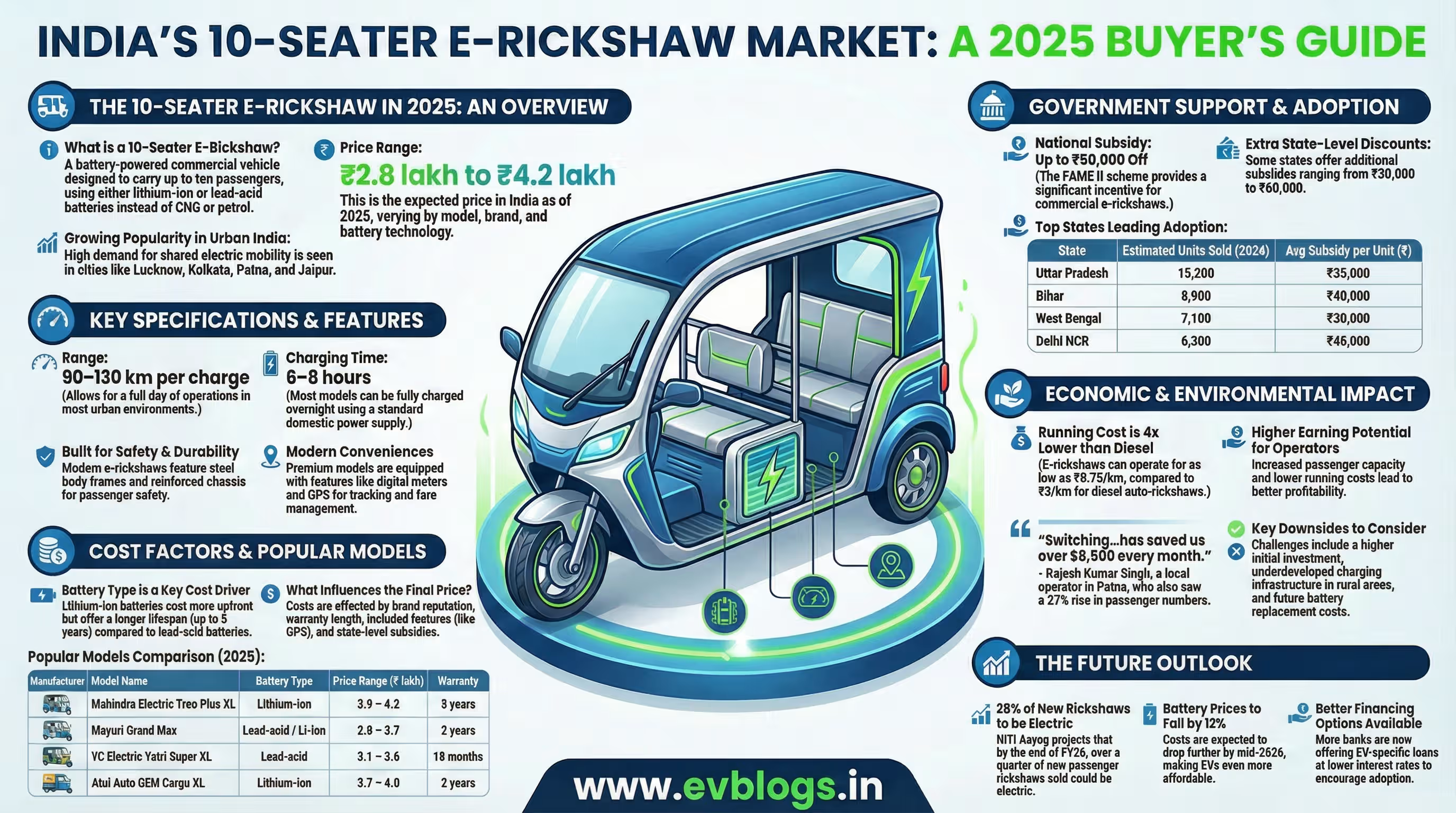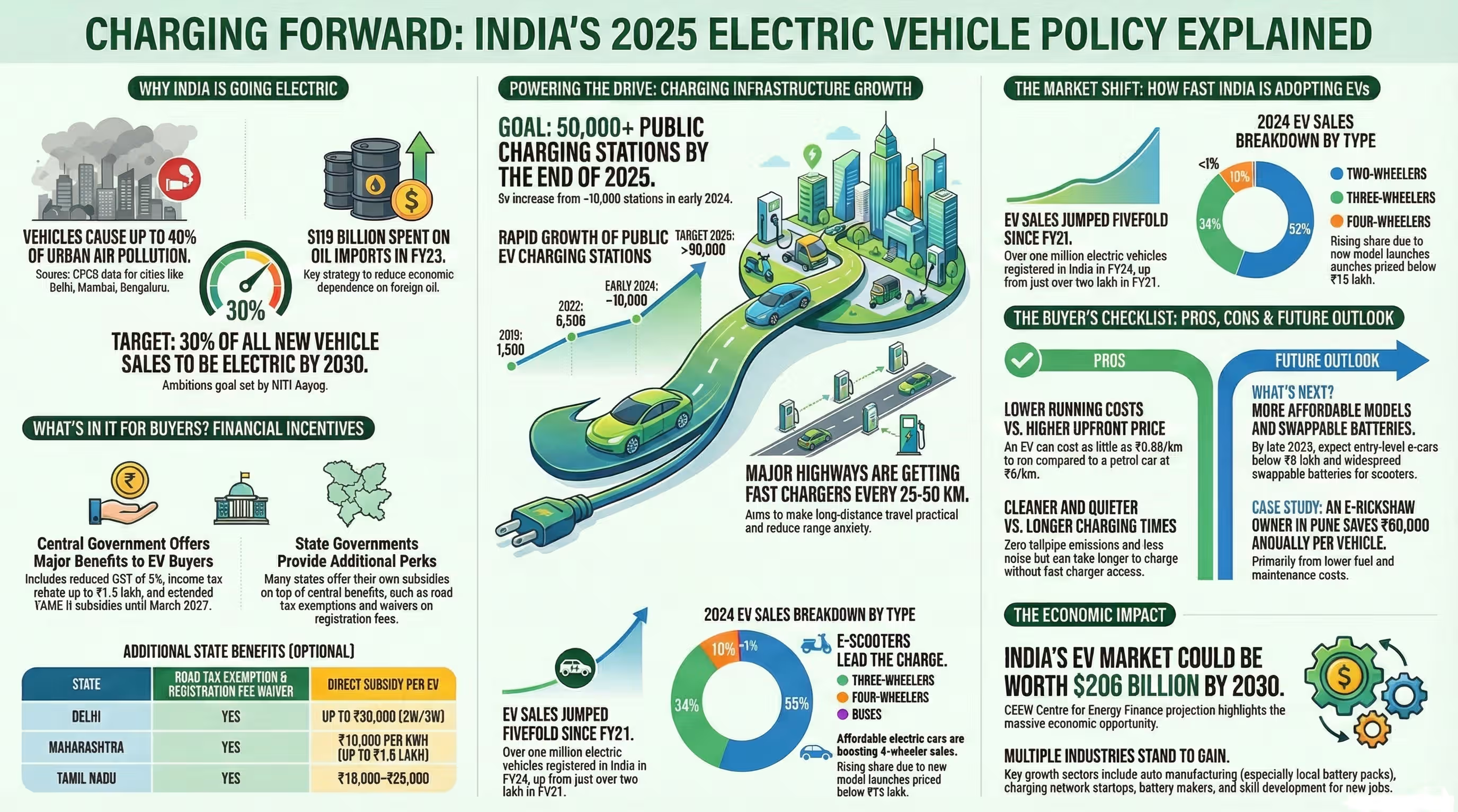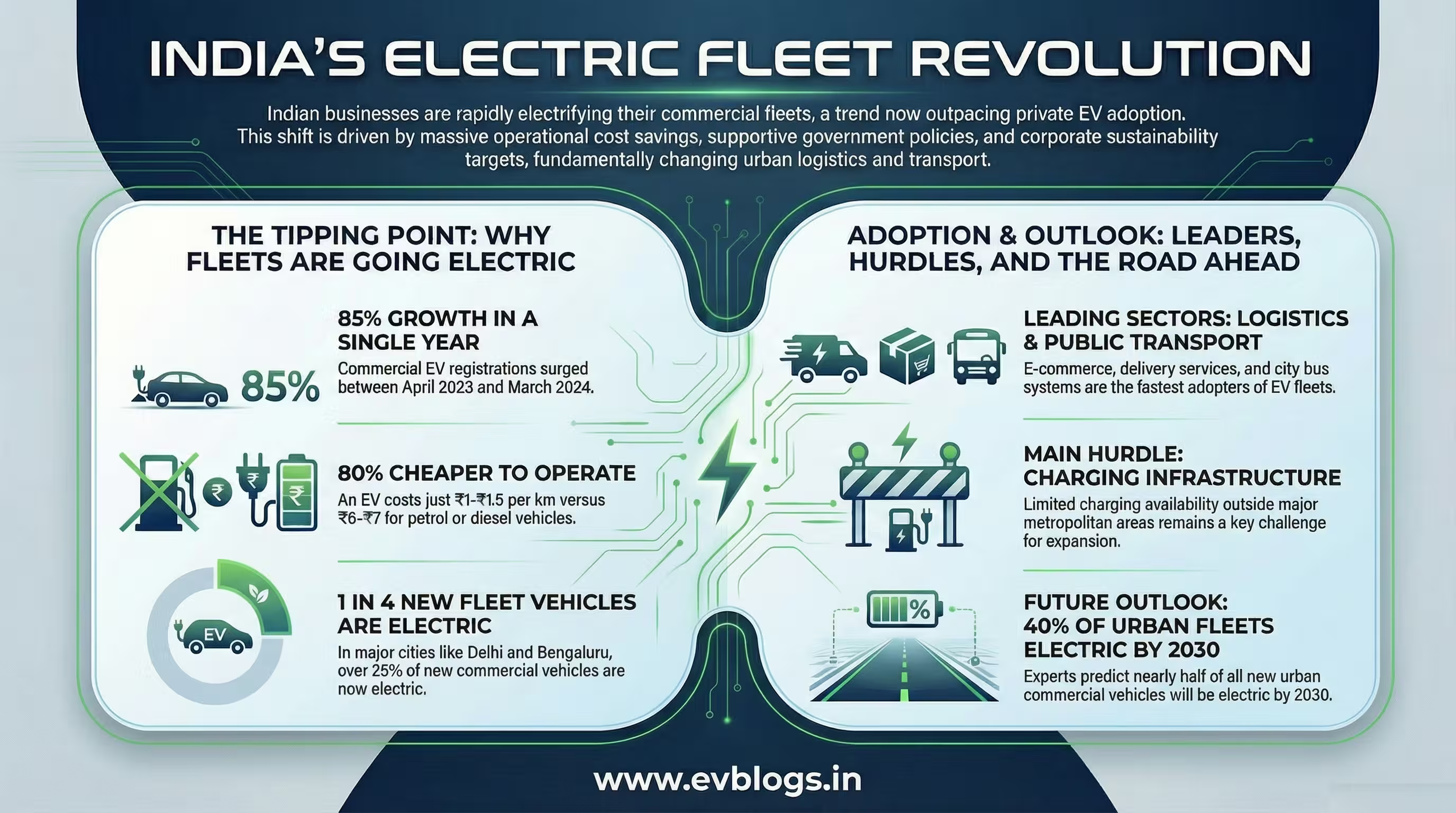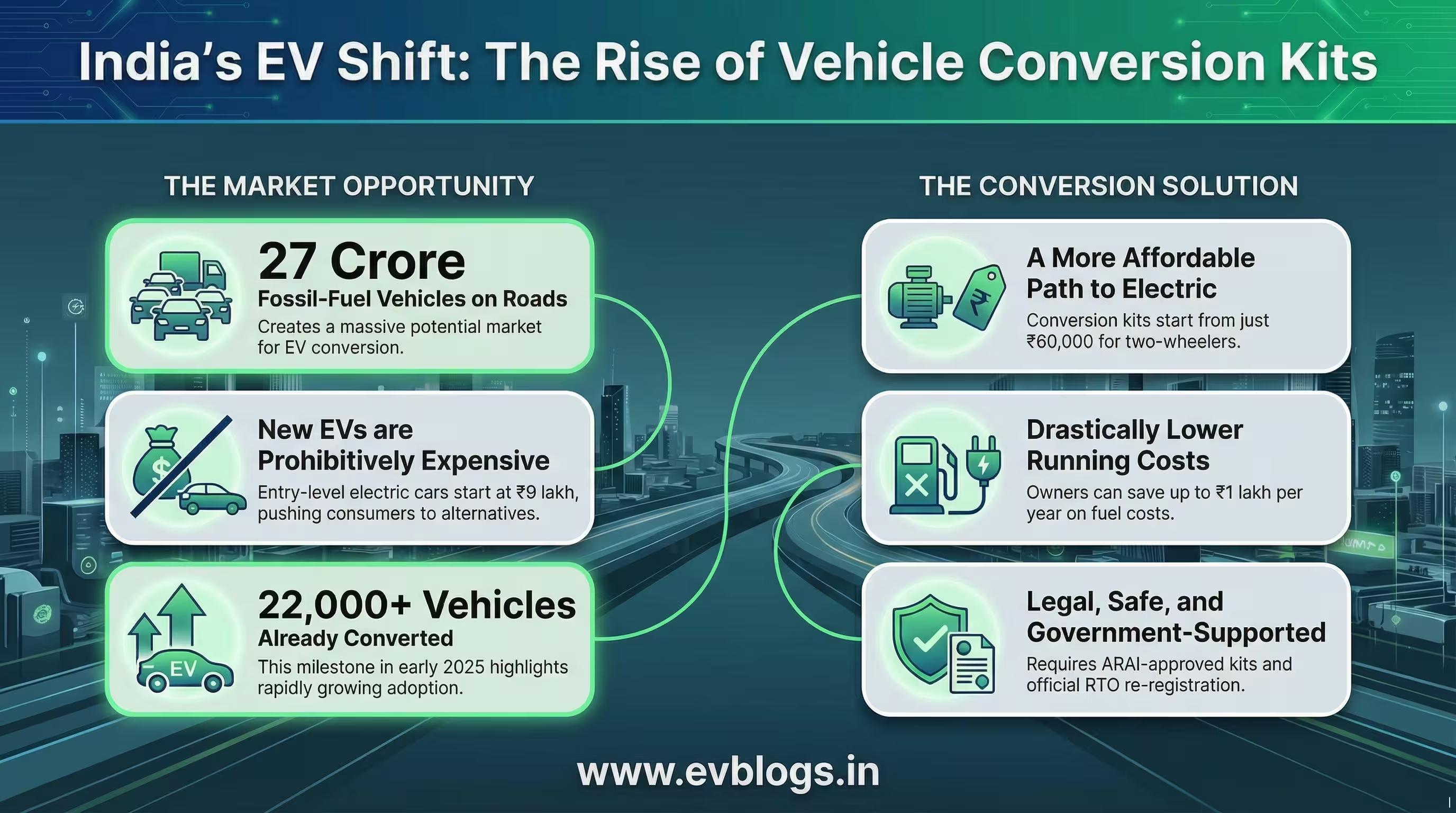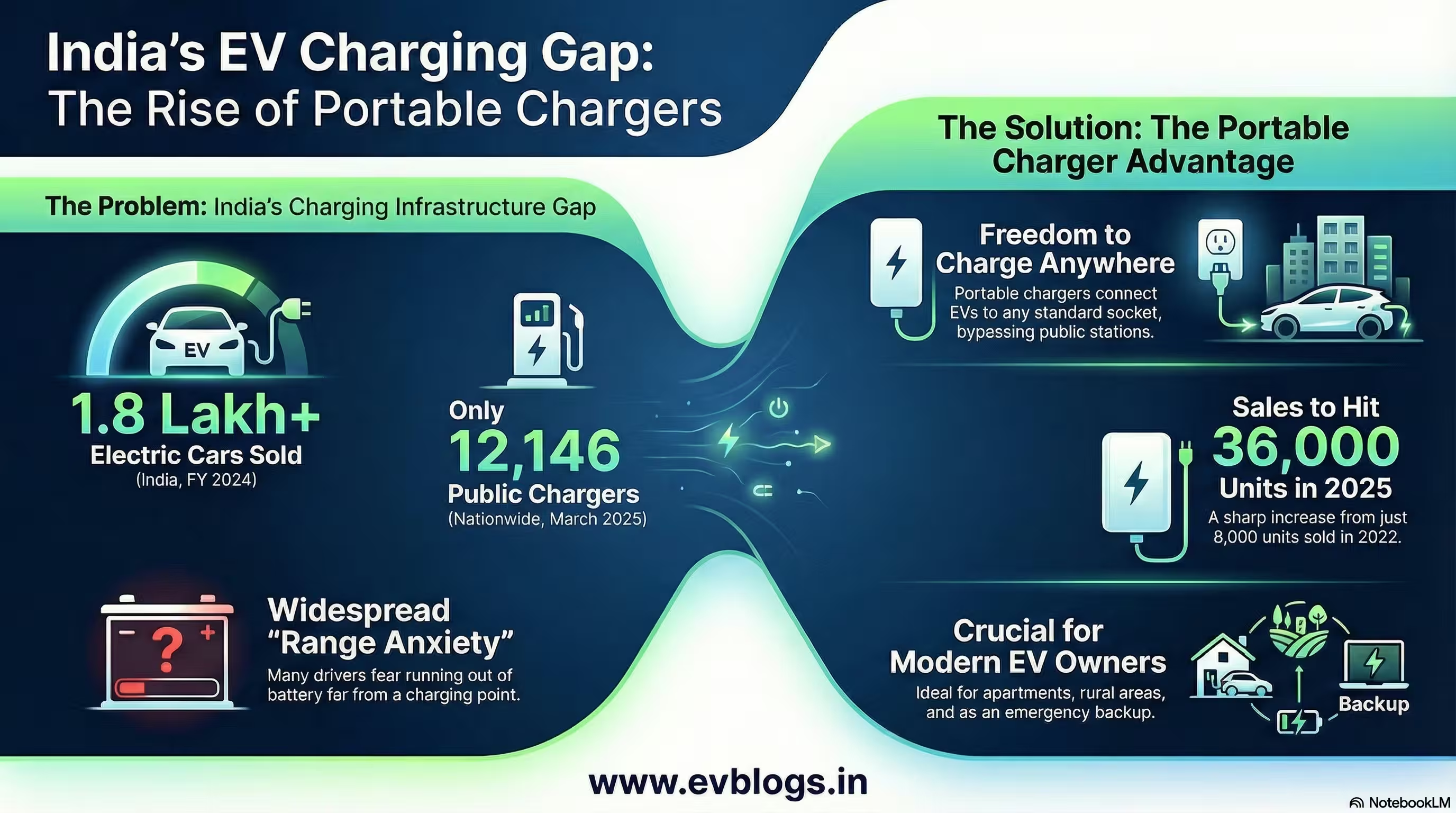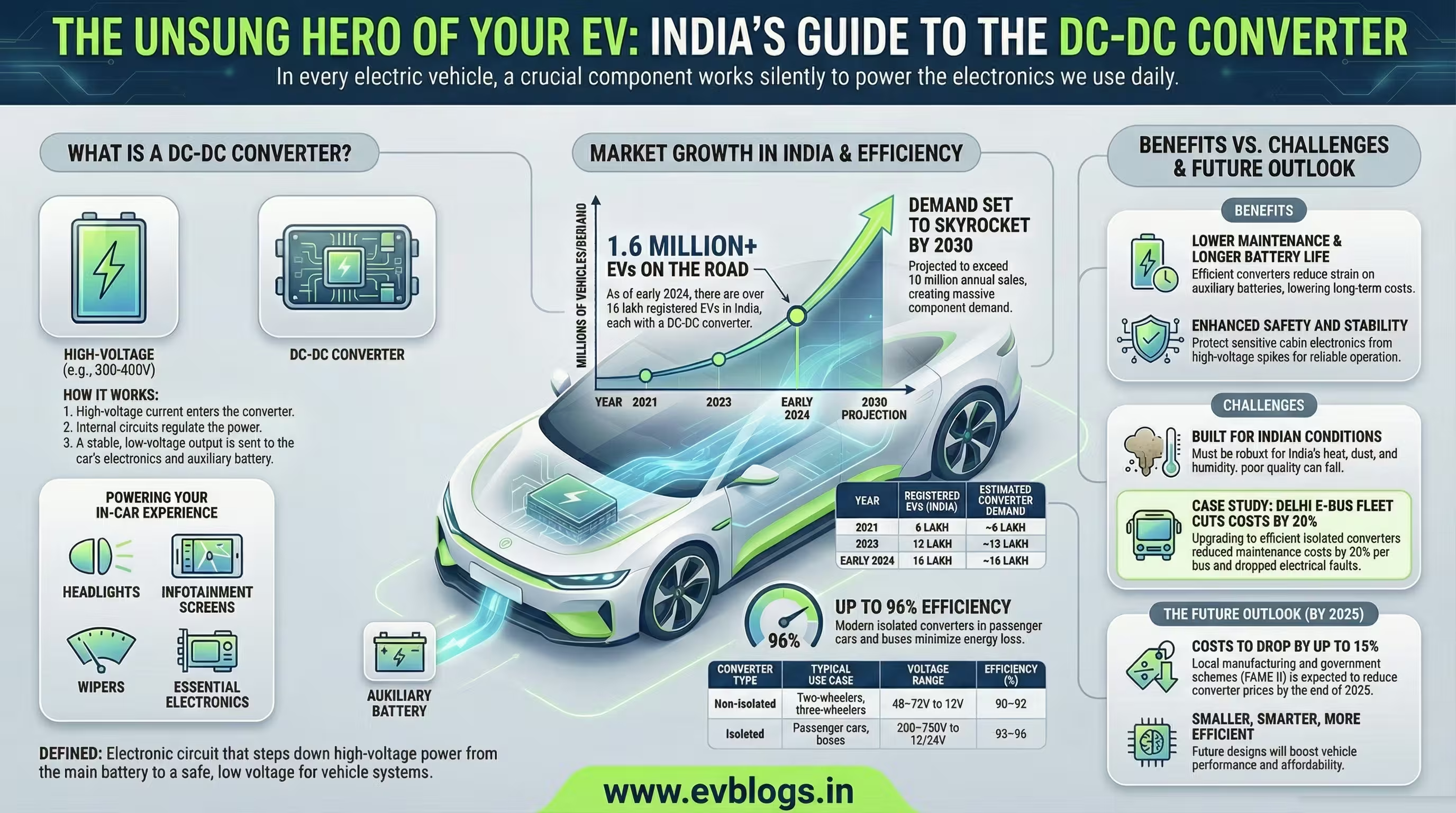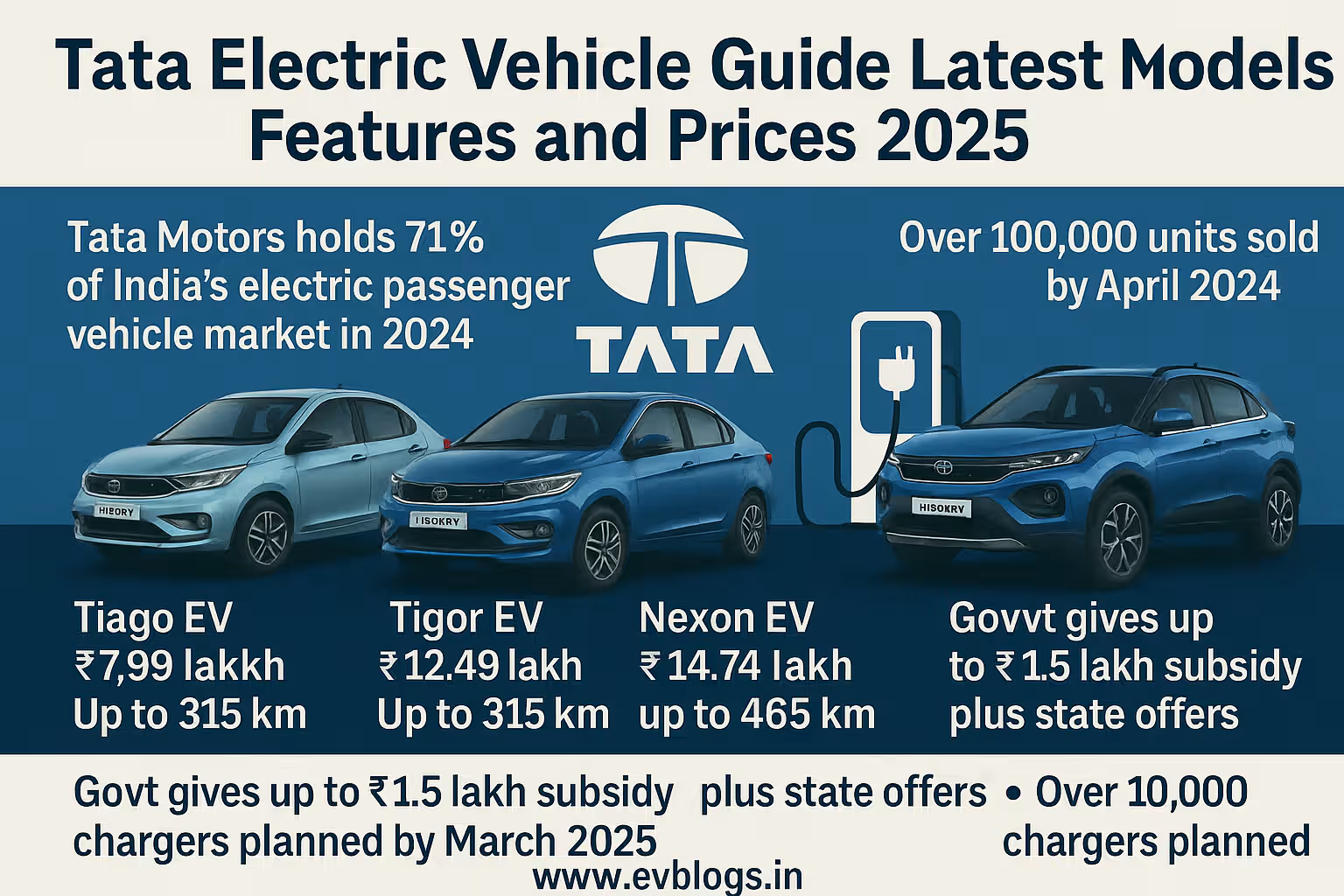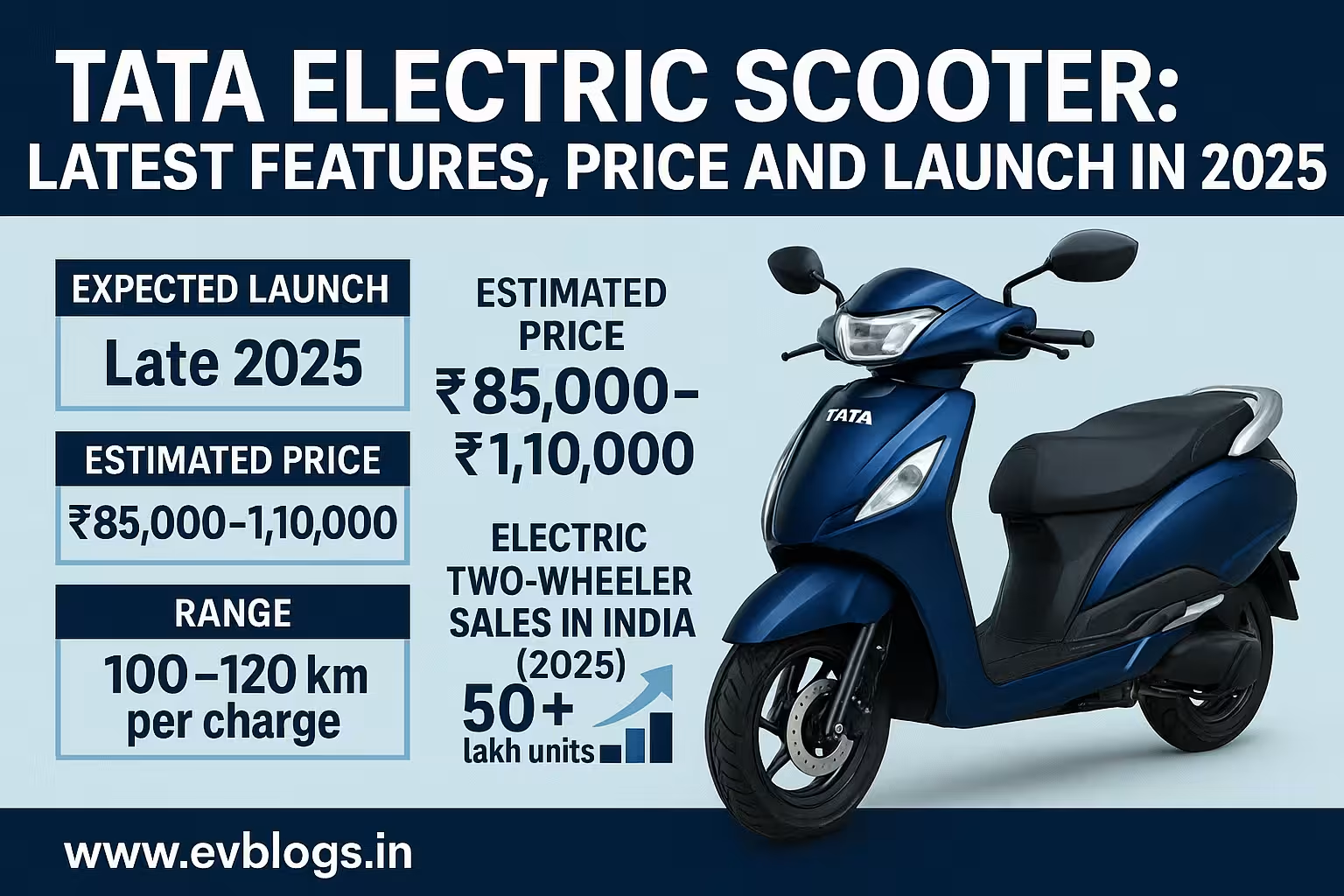Hedhvick Hirav
Hedhvick Hirav is a dedicated EV researcher and editor with over 4 years of experience in India’s growing electric vehicle ecosystem. Their contributions have been recognized in leading sustainability publications and automotive journals.
Summarize & analyze this article with
Choose an AI assistant and open this article directly:
Tip: if the AI doesn’t fetch the page automatically, paste the article URL manually.
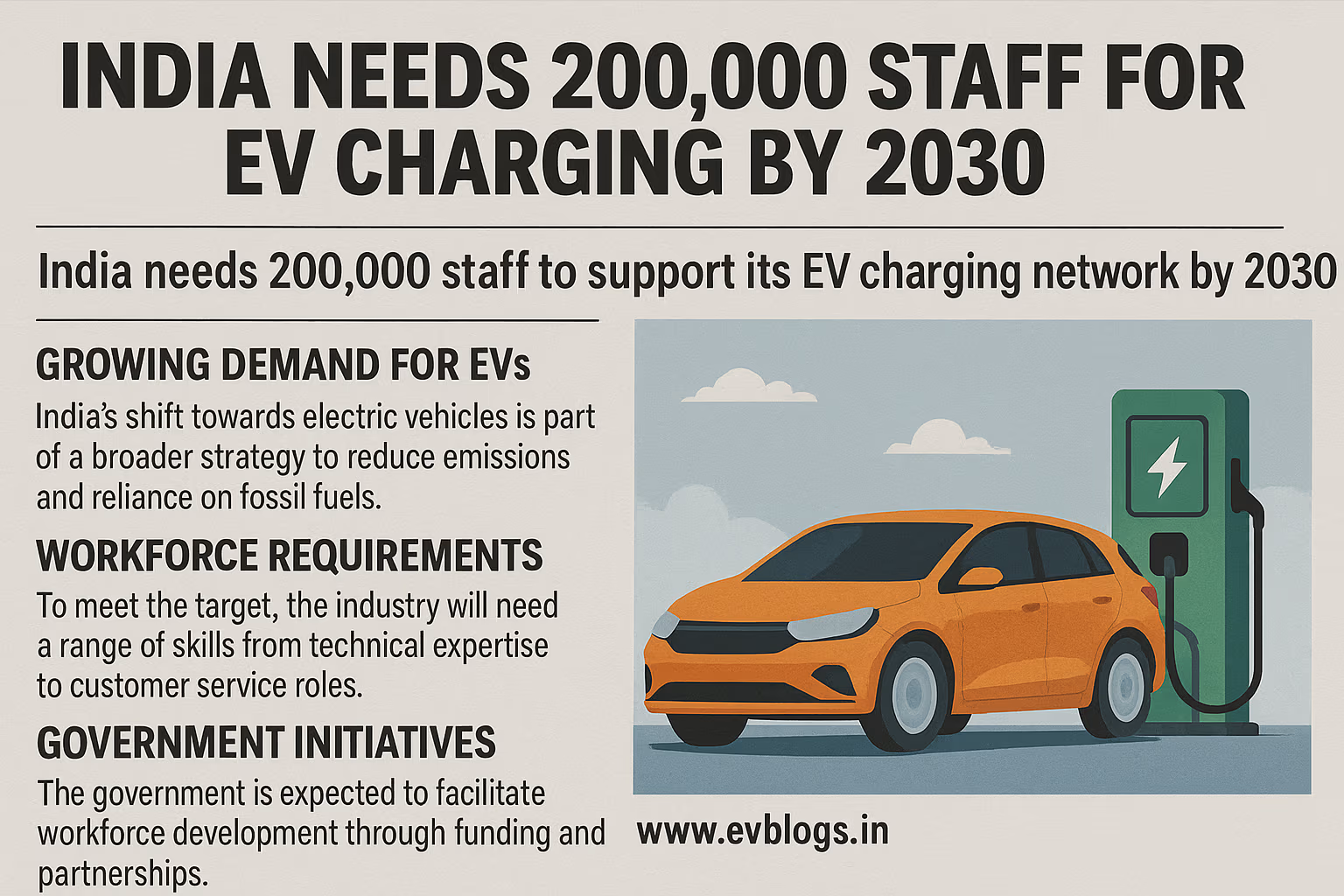
Chennai, Sep 13 — India is projected to require approximately 200,000 personnel for the development and maintenance of electric vehicle (EV) charging infrastructure by the year 2030.
Key takeaways
- India needs 200,000 staff to support its EV charging network by 2030.
- The demand for skilled workers in the EV sector is expected to rise significantly.
- Government initiatives are likely to drive the expansion of EV infrastructure.
Why it matters
The increasing need for a robust EV charging infrastructure is crucial for India’s transition to electric mobility. This demand will impact various stakeholders, including job seekers, policymakers, and businesses involved in the automotive and energy sectors.
Details
Growing Demand for EVs
India’s shift towards electric vehicles is part of a broader strategy to reduce carbon emissions and reliance on fossil fuels. The government aims to promote electric mobility through incentives and policies that encourage the adoption of EVs.
Workforce Requirements
To meet the ambitious target of 200,000 staff, the industry will require a diverse range of skills, from technical expertise in installation and maintenance to roles in customer service and operations management. Educational institutions and training centers will need to adapt their curricula to prepare the workforce adequately.
Government Initiatives
The Indian government is expected to play a pivotal role in facilitating this workforce development through various initiatives, including funding for training programs and partnerships with private companies. These efforts are aimed at ensuring that the workforce is equipped to handle the evolving landscape of the EV sector.
Future Projections
As the EV market expands, the need for a well-trained workforce will only increase. Industry experts suggest that ongoing investments in infrastructure and technology will be critical to sustaining growth in this sector. The transition to electric mobility is anticipated to create numerous job opportunities across different regions of the country.
Sources & quotes
- Original URL: [The Times of India](https://news.google.com/rss/articles/CBMizAFBVV95cUxNcmZWdEJkMkJtZUhTdE5yTmtJMTZ5OWU2M05tTWxQeU9DZ2xUU195ZV90cF8xaDhuRFhvWUFYV1pZT2RhT3YtdkgyUmFDel85bGthUTR1U2hwazhWM3lOT29wNGxEWWhuRlZ5R19ycUVsUmhWRUZpVXhtckY1aG5la1pDd3g4QzVMWC1yYmRCU1N6M3BzVUVDLUFkUUluWmtodEptSW8yZ2E1endIV01EQnVNRnJoV2EwbDVYNVNKWEJ4TE5LUEV0VDU4UzHSAdIBQVVfeXFMTXMwTXo3QlZldlExanpxOV9QeXo3bV82VjgwZkhFRFp5bkw5Q0htTlhHTlM3OGFJeXhwc3g1U2xKTU1yYnVEM21OYWFHYllvTGZUMEdpZktBOWlNMG1DcmhaQ2xyM3RWYk5SVnhOWFNES0RfYi1vQkFvWnJrWGdTRlczcFlZaTVibWZuRjM5Zktvb0txcFZVc1NES2R5RjU2ZlZwU251aUpsU2tZdFpyZ2JlbmExTTJ3MzZkRXR6NW12LWdFaHJPMk5ibEVXR0FoeEZ3?oc=5
- Domain: google.com
- Published date: Not specified
Final verdict / TL;DR
India is set to require 200,000 personnel for its EV charging infrastructure by 2030 to support the growing electric vehicle market. This development is essential for the country’s transition to sustainable transportation.
India is projected to require approximately 200,000 personnel to support the electric vehicle (EV) charging infrastructure by 2030, driven by the country’s ambitious goal of transitioning to a sustainable transportation system. This workforce will encompass a range of roles, including installation technicians, maintenance staff, and customer service representatives, all essential for the operation and upkeep of charging stations. The Indian government, along with private sector stakeholders, is investing in training programs to equip workers with the necessary skills to meet this demand. As the EV market expands, the need for a robust support system will be crucial to facilitate the widespread adoption of electric vehicles across the nation.
According to a report by The Times of India, India is projected to require approximately 200,000 skilled personnel to support the electric vehicle (EV) charging infrastructure by 2030. This demand is driven by the government’s push for sustainable transportation and the increasing adoption of electric vehicles across the country. The workforce will need to encompass a variety of roles, including technicians for installation and maintenance of charging stations, engineers for infrastructure development, and customer service representatives to assist EV users. To meet this demand, educational institutions and training programs will need to adapt their curricula to equip individuals with the necessary skills and knowledge in EV technology and related fields.
India is projected to require approximately 200,000 personnel to support the electric vehicle (EV) charging infrastructure by 2030, as the country aims to significantly increase its EV adoption rates. This workforce will be essential for various roles, including installation, maintenance, and operation of charging stations across urban and rural areas. The growth in EVs is driven by government initiatives to reduce pollution and dependence on fossil fuels, alongside increasing consumer demand for sustainable transportation. The development of a skilled workforce in this sector will be crucial to ensure the effective implementation and management of the expanding EV charging network.


